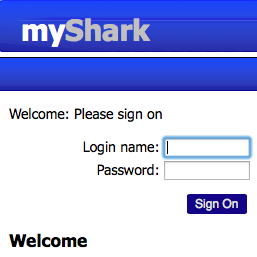Resources
"He who is afraid to ask is ashamed of learning." ~ Danish Proverb
help is just a click away
This page contains information and links to various resources
that students will find helpful in the course of their study. I've
included links to instructional resources for faculty use.
Charter members of the Young Executives Society
(YES!) at the COM-FSM National Campus elect their first set of officers
in Spring 2012.
COM-FSM Online Resources
| Home Page |
Webmail |
myShark |
Catalog |
LRC onine |
on Facebook |
Jobs |
 |
 |
 |
 |
 |
 |
 |
student resources
Email Me!
- Need Help? SEND EMAIL TO help@rafaelpulmano.com
- Have question? SEND EMAIL TO question@rafaelpulmano.com
Blogs and Web Sites
Video Lectures and Tutorials
- Learn the Mac In Under An Hour
– Are you new to Mac? Just got your first Apple Computer? In this one
video by David A. Cox, an award winning teacher who specializes in
teaching technology to the non tech-savvy, you will learn everything
you need to get up and running.
- Accounting
- Introduction to Art
- Other courses
faculty resources
Selected Articles
Formative Assessment: The Secret Sauce of Blended Success
Although most people probably associate the term “assessment” with quizzes and exams, in reality these high-stakes activities represent a small subset of assessment opportunities. Educationally, assessments can be broken into two larger categories: summative and formative. | Oliver Dreon, PhD
Four Lessons about Learning Discovered on a Chairlift
It’s all about the learning. “Successful teaching isn’t measured by what I have covered; it is measured by what students learn.” | Maryellen Weimer, PhD
The Emotions That Fuel Our Teaching
We teach in an environment where content continues to dominate the thinking of so many faculty that there’s little room left for consideration of the emotional. Nonetheless, I remain convinced that you cannot power a teaching career on intellect alone. Emotions are an ever-present part of teaching. | Maryellen Weimer, PhD
Student Motivation: Moving Beyond “Leading a Horse to Water”
When it comes to student motivation, does the axiom, “You can lead a horse to water, but you can’t make him drink” apply? Although I believe that, as instructors, we cannot force motivation and learning upon students, we do play a vital role regarding student motivation and a student’s ability to gain knowledge and proficiency in the subject matter. | Ronald C. Jones
Three Teaching Styles
The most effective teachers vary their styles depending on the nature of the subject matter, the phase of the course, and other factors. By so doing, they encourage and inspire students to do their best at all times throughout the semester. It is helpful to think of teaching styles according to the three Ds: Directing, Discussing, and Delegating. | Paul B. Thornton in Philosophy of Teaching
Experimenting with Facebook in the College Classroom
I encouraged my students to join and discuss their research on our Facebook page. I visited the page each day to answer questions and post relevant articles. The page seems to be a natural addition to this course, which requires the budding researchers to discuss and review literature, data, and regression analysis. | Nisha Malhotra, PhD
Assessing Assessment: Five Keys to Success
There are those in the academic community who dread hearing and reading about assessment. But aside from the mandatory reporting required by credentialing and accreditation agencies, how can faculty members be sure that all of the assessment activities they are required to report actually produce change and are not just more paperwork? | Vickie Kelly, EdD
A New Way to Assess Student Learning
The data this assessment generates enables me to better plan for the next class. It helps me craft assignments, build/revise content, and evaluate individual and whole group progress.... In effect, a retrospective pretest-posttest data set lends itself to a multitude of inquiries ultimately answering the question “Did I help my students learn?” and if so, “What was it that they actually learned?” | Deborah Bracke
Helping Students Discover the Value of a Good Set of Notes
Try this as an end-of-class activity: Have students rewrite their notes, or part of their notes, and then ask for volunteers to read them out loud to the rest of the class. This will give you a sense of the level of comprehension and provide you with the opportunity to clarify what isn't understood and deepen what is. Plus, hearing their peers explain a concept in their own words can often help other students to better understand the day's lesson. | Maryellen Weimer, PhD
Love the One You're With: Creating a Classroom Community
Every good teacher knows that learning doesn’t happen in isolation. Creating a learning community gives students a sense of security, study pals, and somebody to double-check with about assignments. | Dr. Cynde Gregory
this way please ...
Resources Archive
This page does not reflect an
official position of the College of
Micronesia-FSM
